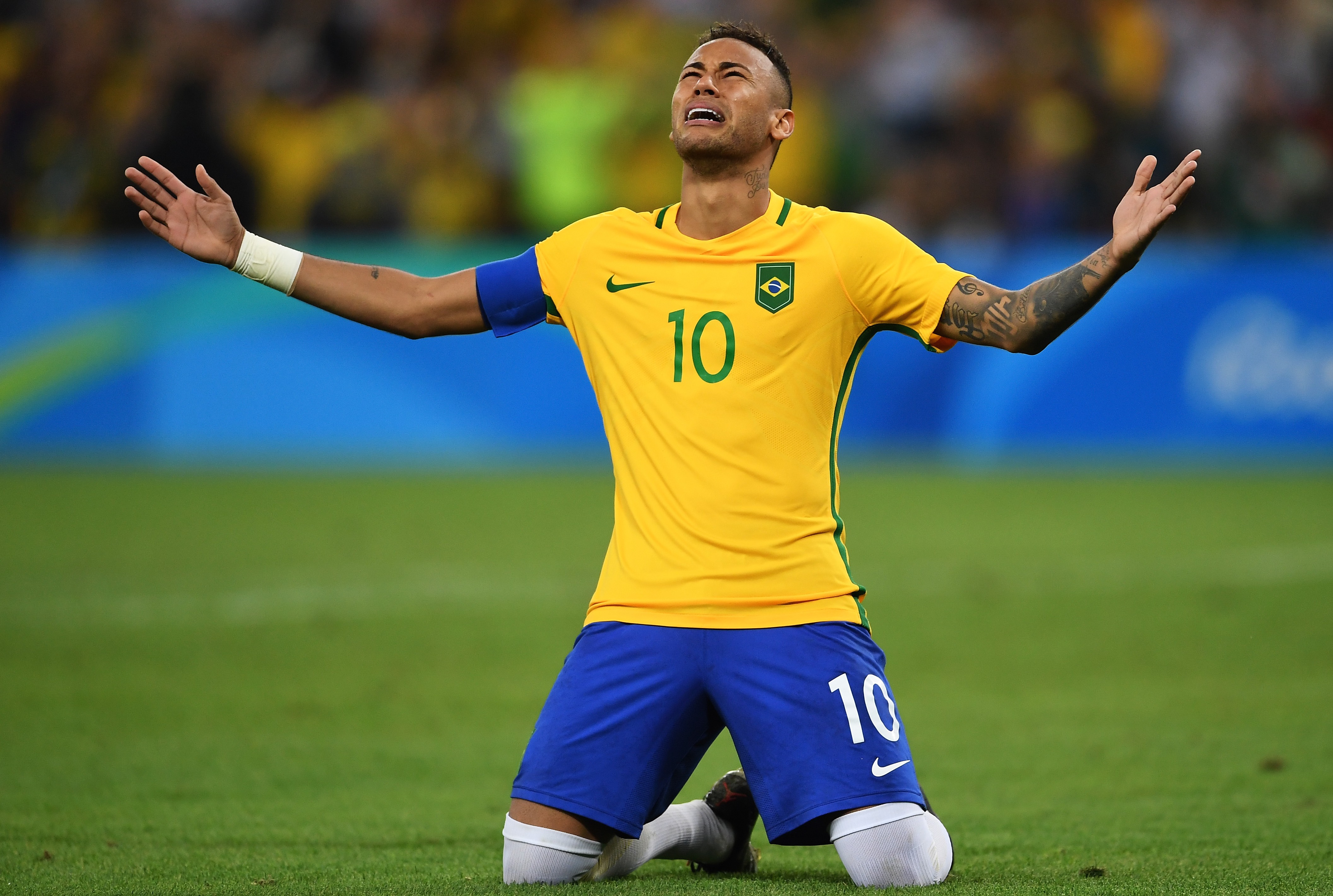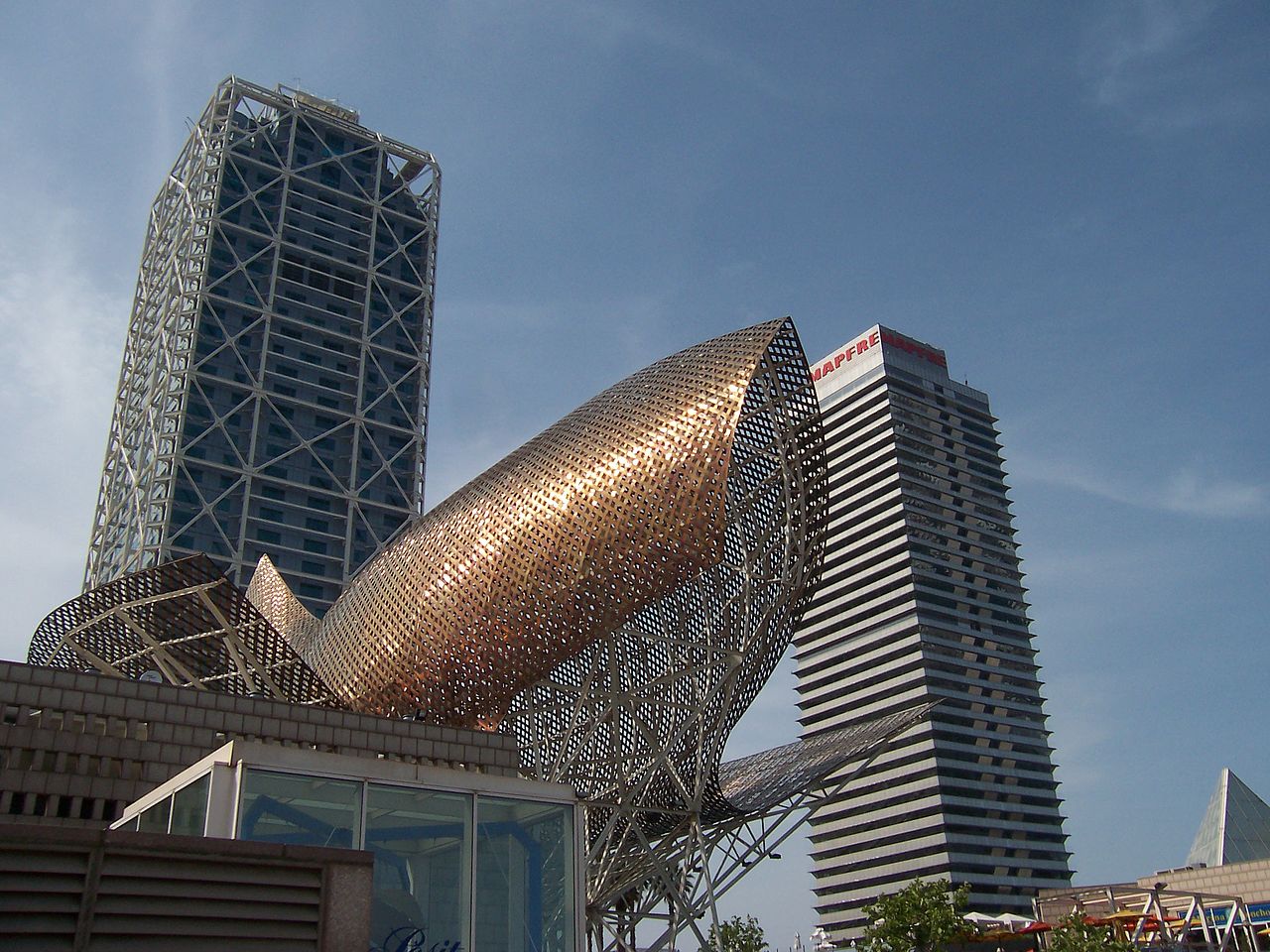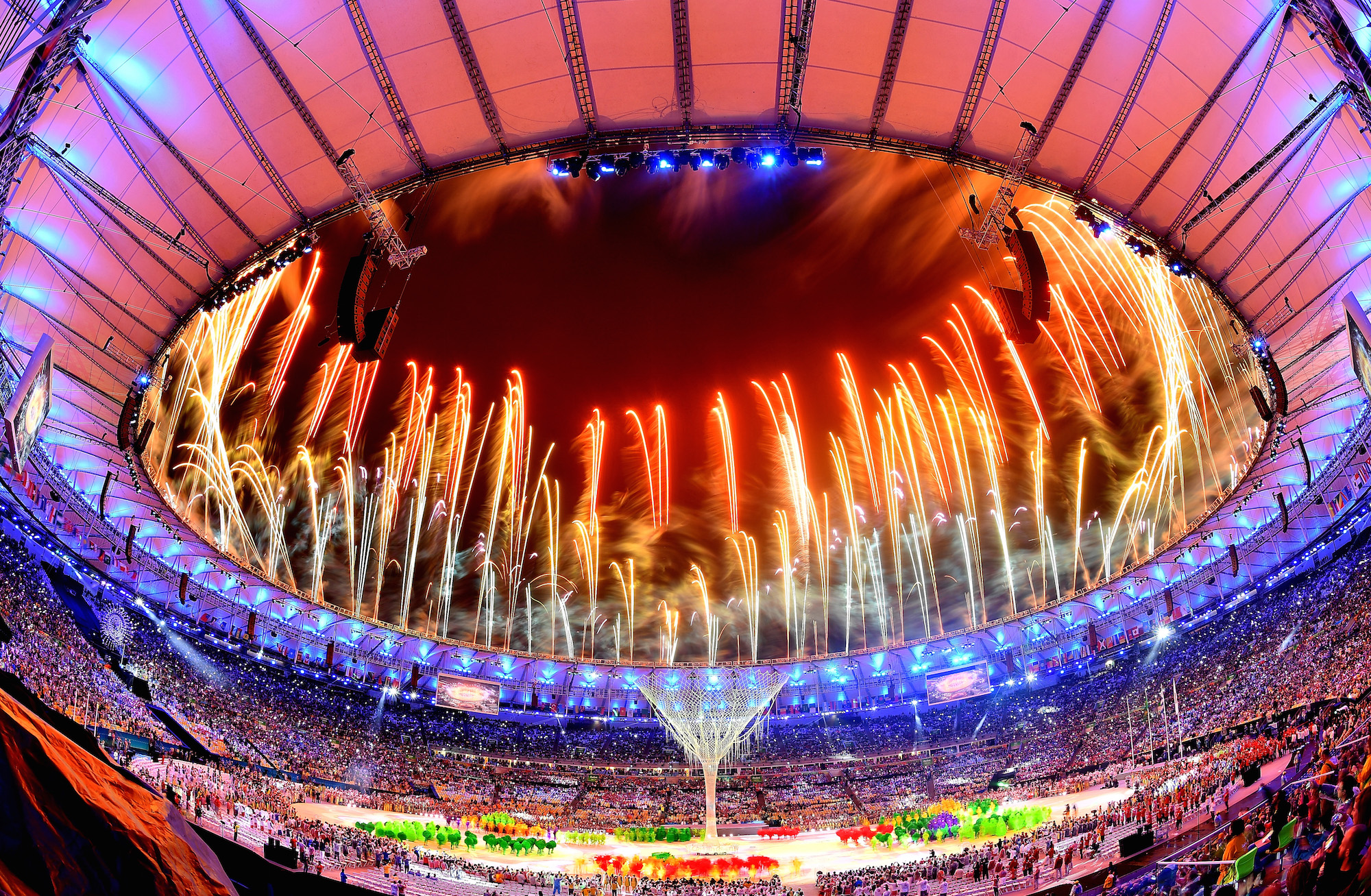At the end of it all, God was still Brazilian. At least it must have seemed that way in the summer of 2016, when something possibly divine granted the Cariocas a little piece of El Dorado, a belated gold rush, on the penultimate day of their own Olympic Games. After 90 minutes of unbearable drama and concerted passion at the iconic Maracana stadium, Neymar delivered salvation from the penalty spot in the soccer final of the 2016 Rio Olympics. With the gold medal bungling around their necks, Brazil was once more ‘a patria em chuteiras,’ the country in cleats.
The host had won the medal it craved and yearned for the most, as soccer is still the measure of its sporting success. A weeping Neymar was the iconic image of Rio 2016, the quadrennial sporting ultimacy that had been slow-burning, meandering and confounding, yet remained this fabled and wretched piece of human theater during a 17-day obsession with weightlifting, diving, equestrian, and other understated sports.
“The gold medal in football was of symbolic importance to Brazil,” says Emerson de Souza, the president of the residents association of Horto, a tight-knit community of 620 families in behind Rio’s lush Jardim Botanico. He watched the final on TV at home.

“Or, perhaps, the win of Rafaela Silva was the most touching moment of the Olympic Games, because of the journey that she made,” reflects de Souza. “She came from the City of God and dedicated her life to judo. It shows that small communities and favelas have enormous potential.”
Horto, a tropical paradise of sprawling fauna and flora in the heart of Rio, is one of those marginalized coteries, sandwiched between the upscale neighborhoods of Gavea and Lagoa in the highbrow Zona Sul. For 200 years, families descended from slaves have been employees at the adjacent botanical garden. In Rio, and Brazil at large, Horto is among the most valuable and prized land. In the nearby Jardim Botanico neighborhood, the price per square meter was $3997 in 2016, according to real estate index FipeZap.
De Souza and his residents became a target of the pre-Olympic speculative real estate boom, with the botanical garden arguing that they needed the land to expand their research institute. Residents contended that Globo, the behemoth of Brazil’s media, with its neighboring headquarters, wanted to gentrify the area. During the Olympic Games a federal court delivered a 90-day eviction notice to Horto’s residents.
Ever since, Horto’s story has been one of survival, a constant unequal tussle with real estate developers. They have remained the one significant community under threat after the Olympic Games. Last November, Rio’s notorious Military Police evicted Marcelo de Souza and his family from their home. They were offered neither alternative housing nor monetary compensation. More eviction notices have been issued.
“There is no legal ground for eviction,” argues Theresa Williamson, the executive director of Catalytic Communities. “Horto is on federal land, so it doesn’t matter what the current mayor [Marcelo Crivella] thinks, but there are historic links between right-wing, militaristic governments, like Temers, and Globo.”
“This is the daily reality,” laments de Souza. “They applied a lot of make-up during the Olympic Games to show a city that functioned. Which legacy of the Olympic Games? The government never assumed its social responsibility. Where was the investment in creches, education and in culture?”
“The government applied a lot of make-up during the Olympic Games to show a city that functioned.”
Perhaps the term legacy, a favorite in the lofty lexicon of bid books, is not applicable in the Olympic context. That self-proclaimed justification that comes with the modern Olympic Games has too often been absent, with one notable exception: Barcelona 1992. That was supposedly a model edition of the Olympic Games.
“In the aftermath of the Olympics, Barcelona went from a backward rustbelt Mediterranean port, that had had barely any notice on it since the Civil War, to, suddenly, one of the most desirable tourist and conference locations in the world, to the point today, where the debate in Barcelona is how can we tone down the tourist influx and diversify in other areas?” highlights David Goldblatt, renowned sports writer and sociologist.
In Barcelona, the Olympic Games were the catalyst for redevelopment and regeneration after a careful process of systematic and sophisticated urban planning, with a €10 billion investment and citywide street beautification. The city of Gaudi, Miro and Picasso was transformed into a modern metropolis. “Those Olympic Games looked fantastic on TV in a way that no other Olympics has done,” adds Goldblatt. “It got an extraordinary global response.”

No other host city has repeated Barcelona’s success. Rio certainly didn’t. The city, Brazil’s post card, showed off Copacabana’s curvy shapes and its natural splendor, but ultimately Rio hosted the Olympic Games in impossible conditions, at a time of a severe economic downturn, fiscal chaos, and a constitutional crisis. At a cost of $11.5 billion, the macro-fiscal impact of the sporting extravaganza remained limited.
“Without the Olympic Games, the federal government wouldn’t have invested so much money in Rio de Janeiro,” explains Trengrouse. “The Games deferred the crisis. They were a huge investment, but in reality it’s not more than 1% of Brazil’s GDP.”
The Olympic Games were an accelerator for the current Caricoa tragedy, not the catalyst. Today, Rio is a vague purgatory, a dystopian sprawling urban monstrosity. The state of Rio de Janeiro is bankrupt with a deficit of $6.29 billion; the municipality is struggling along. Near-shuttered universities, failing hospitals and a corrupt police force have plodded on.
“Since November 2016 my salary has been delayed,” admits Mauricio Santoro, a professor at Department of International Relations of UERJ, Rio de Janeiro State University. “It started with a small delay of two weeks, but has escalated to four months. My personal finances are robust, but there are 200,000 civil servants and pensioners who suffer from the delays. They struggle to pay basic expenses, like rent. They suffer from health problems, depression or other complications due to their economic problems. Colleagues have lost their homes and were forced to move to shelters for the homeless. It is unprecedented, it didn’t even happen during the period of the hyperinflation in the 1980-1990s.”
The Olympic Games were a quick fix. They didn’t bring prosperity, but abject dysfunction.
The Olympic Games were a quick fix. They didn’t bring prosperity, but abject dysfunction. 8,500 troops have been deployed to curb the rising crime and violence in Rio. In 2017, more than 480 citizens and ninety police officers have been killed in the city. Stray bullets are frequent again. “It’s Sarajevo,” bemoans Alexandre Gontijo, a famed Brazilian sports journalist.
“The police have lost control of the city, but Rio has no economy – thats the problem” explains Henrik Brandao, the Latin America correspondent for Swedish newspaper Dagens Nyheter. “This is not a capitalistic city of offer and demand. How do you survive? Cargo at Avenida Brasil is getting looted. That’s a reason for the military to be here, major companies are losing money. It is a very hard legacy. Cariocas got a metro, a boulevard and a museum. The politicians took everything else.”
When Rio was awarded the Olympic Games in 2007, the future looked bright again. The city and the country were sold a beautiful dream. That year Rio hosted the Pan-American Games, a first step in its resurrection ever since Brasilia dethroned the city as Brazil’s capital in 1961. The economy picked up with the oil boom and the local, regional and federal authorities worked closely together. Rio governor Sergio Cabral led the marvelous city forward on a path of self-fulfillment.

Flash forward to 2017, and it has all proven to be a mirage. Rio is broken, failing to meet its basic obligations. The old staple of corruption made the exploitation of oil and the staging of mega-sporting events a toxic endeavor. The Car Wash investigation exposed a gigantic network of corruption and kickbacks between real estate conglomerates and politicians, Brazil’s classic and enduring model of cronyism. Cabral is in jail. The World Cup and the Olympic Games were sports’ Lavo Jato, a neoliberal heist with public money.
“The Olympic Games were managed the way everything is in Brazil,” explains Trengouse. “Everything related to public finance has corruption in Brazil. It’s unfortunately the modus operandi. The Olympic Games come with Agenda 2020 today, which essentially means ‘Let’s use what exists.’ Why couldn’t this happen in Rio? Everything had been in place with the Pan-American Games.”
The Olympic Games did fulfill the agenda of the IOC. They generated a revenue of $5.6 billion. They delivered and enhanced the power of sports. Usain Bolt and Michael Phelps were mesmerizing, the ultimate Olympians transmitting deep, unadulterated joy with their celestial achievements. The Olympic Games once more offered top performance, competitive sports in fabulously, constructed stadia. Who can forget Simone Biles’ accomplishments in the gymnasium? Or Fiji’s glorious gold in the Rugby Sevens? Or Sweden upsetting the United States’ women’s team, a year after their World Cup romp?
“For all its cosmopolitan core, that’s very important for the Olympics: it’s the teary moment while the national anthem plays and the gold medal is awarded, that is pulling in ratings,” says Goldblatt. “High-level sports are an incredible form of cultural performance and interaction.”
It has all proven to be a mirage. Rio is broken, failing to meet its basic obligations.
By IOC acclaim, the Rio Olympic Games were the best ever – that is until the next staging in Tokyo, which has vowed to not repeat Rio’s mistakes. That may be the silver lining: Rio’s true legacy is that the Olympic Games must be delivered on more equitable and sustainable terms in the future. The IOC hasn’t heeded the message yet: the 2024 and 2028 awards of the Olympic Games to Paris and Los Angeles respectively were dictated by considerations about the market place and broadcasting; their readiness to stage the Olympic Games was but coincidental.
Back in Rio, citizens are disenfranchised and angry: their city and country remain a dream, in which the future never seems to arrive. “The vast majority of Brazilians have been living like refugees in their own country, without constitutional rights,” says de Souza.
“For too long we have been delaying the big reforms that our country must undertake, the need to reform our terrible political system, to improve our crumbling infrastructure, to have good public policies in education and health,” says Santoro. “We have a long way to go until we meet with the future.”







